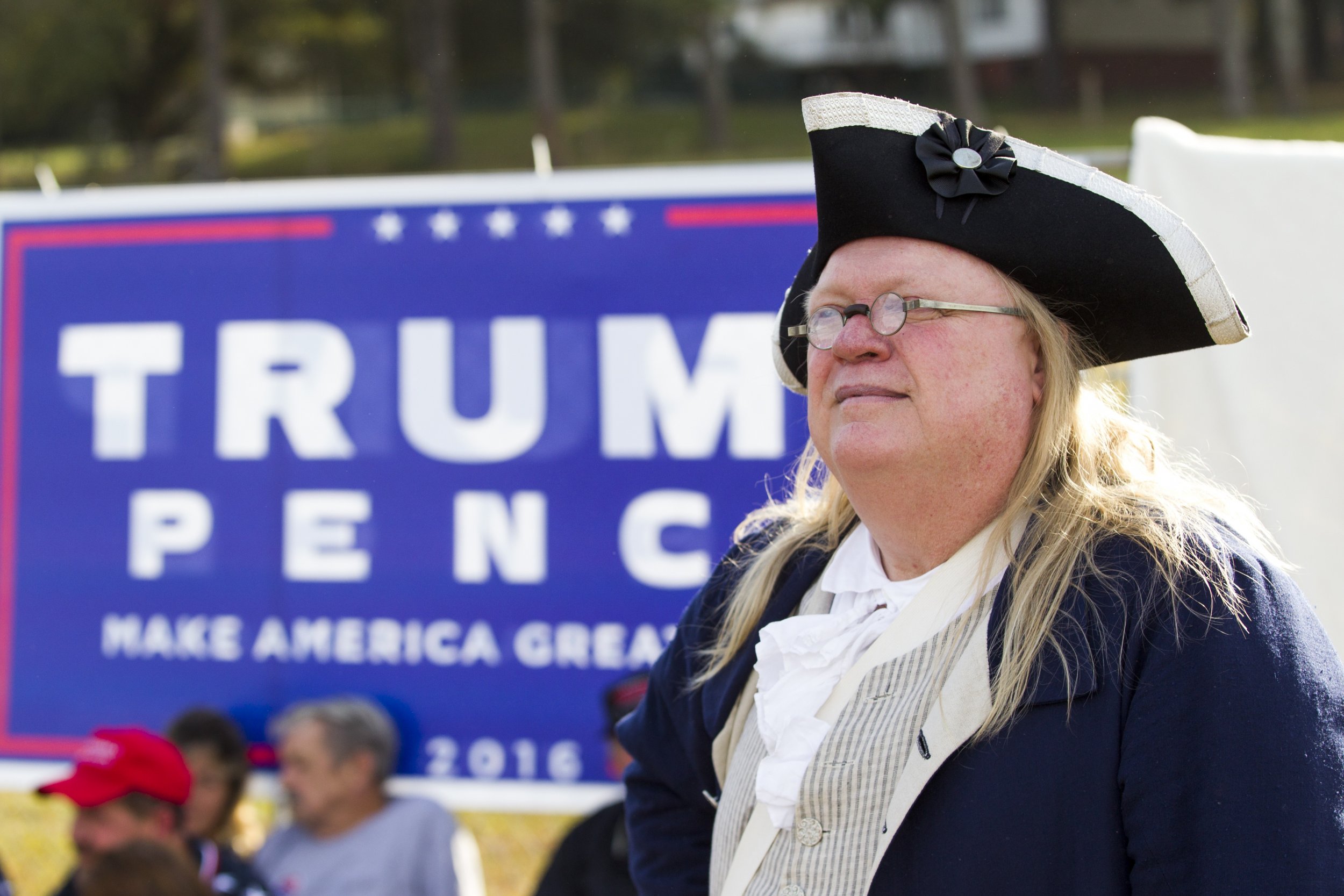
More than two centuries ago, when delegates at the Constitutional Convention were debating what offenses should be grounds to impeach the United States president, statesman James Madison suggested, "He might betray his trust to foreign powers."
President Donald Trump's relationship with Russia is the subject of investigation. But the handful of Democratic lawmakers who have filed articles of impeachment against him have cited reasons other than Madison's centuries-old "foreign powers" justification.
Related: Six Democrats introduce Trump impeachment articles
The delegates discussed the topic of impeachment on July 20, 1787 at the Constitutional Convention, which met for a few months in Philadelphia. The convention was meant to address problems with the Articles of Confederation. From the meetings came the Constitution, which went into effect in 1789.
"The big question at the convention was how broadly or narrowly to define impeachable offenses," said Jeffrey Rosen, president and CEO of the National Constitution Center, a history museum in Philadelphia.
At the gathering, George Mason, a delegate from Virginia, wanted to use the word "maladministration" as a cause for impeachment. But Madison, who is considered the "father of the Constitution" and later became the fourth president of the United States, worried "maladministration" was too vague. So he suggested they instead use "high crimes and misdemeanors."
Madison went on to provide examples of such wrongdoings by a president. "He might lose his capacity after his appointment. He might pervert his administration into a scheme of peculation or oppression," Madison suggested. "He might betray his trust to foreign powers."
Later at the convention, James Iredell, who went on to become a Supreme Court justice, said, according to Harvard legal scholar Cass Sunstein, "I suppose the only instances, in which the president would be liable to impeachment, would be where he had received a bribe, or had acted from some corrupt motive or other." Such a bribe, Iredell added, might come "from a foreign power, and, under the influence of that bribe, had address enough with the Senate, by artifices and misrepresentations, to seduce their consent to a pernicious treaty."
The delegates finalized the impeachment language and ratified the Constitution. The final language, in Article II, says an officer can face impeachment for "treason, bribery or other high crimes and misdemeanors." But those offenses are thought to include Madison's "foreign powers" criterion, according to the National Convention Center's Rosen. Princeton University historian Keith Whittington has pointed out that the Constitution states only the general principle of impeachment and leaves Congress to put forward the specifics.
Madison's point was not forgotten. In 1974, as the House Judiciary Committee considered the impeachment of former President Richard Nixon, a committee report mentioned the comments from both Madison and Iredell. The "foreign powers" line appears often in modern historians' accounts of the Constitutional Convention.

The topic of foreign influence on Trump's presidential campaign is the subject of a Department of Justice special counsel investigation and probes by three congressional committees. The United States intelligence community published an assessment in January stating that Russia meddled in the 2016 election, but the topic of collusion is one of partisan debate. Trump has repeatedly said there was "no collusion." Congressional investigators are divided on the subject, even as the list grows of undisclosed contacts that Trump campaign officials had with people connected to the Kremlin or who claimed to have connections.
"We have not had one witness or one shred of evidence" suggesting collusion, Representative Tom Rooney, a Republican member of the House Intelligence Committee, told Newsweek in late October. But Representative Adam Schiff, the Democratic ranking member of the committee, said, "You have to, I think, willfully blind yourself to what we've seen to suggest there's no evidence."
Several House Democrats have called for Trump's impeachment. On November 15, six of them filed multiple articles of impeachment, alleging obstruction of justice, violations of the foreign and domestic emoluments clauses, the undermining of the freedom of the press and the undermining of the federal judiciary. In response, a Republican National Committee spokesman called the move "a baseless radical effort that the vast majority of Americans disagree with." Previously, two more House Democrats had called for Trump's removal through impeachment. Such calls have not received widespread support from Democratic leaders.
Press reports have cited Madison's "foreign powers" line when discussing the possibility of a Trump impeachment. But none of the lawmakers appear to have directly cited it in their reasons. The closest they have come is alleging that Trump violated the emoluments clauses of the Constitution, which restrict gifts that U.S. officials can receive from foreign governments. Ethics watchdogs have accused Trump of violating those clauses when foreign officials stay at his Trump International Hotel in Washington, D.C.
The lawmakers have also mentioned the Trump campaign's alleged ties to Russia, but they used that to discuss possible obstruction of justice, and not to address the ties themselves. "As the investigations move forward, additional evidence supporting additional articles of impeachment may emerge," Representative Brad Sherman, who filed impeachment articles, said in a July statement. "However, as to obstruction of justice...the evidence we have is sufficient to move forward now."
The House of Representatives has impeached just two presidents: Andrew Johnson and Bill Clinton. The Senate did not convict either of them. Nixon resigned after the House Judiciary Committee launched an impeachment investigation but before the House considered resolutions.
Uncommon Knowledge
Newsweek is committed to challenging conventional wisdom and finding connections in the search for common ground.
Newsweek is committed to challenging conventional wisdom and finding connections in the search for common ground.
About the writer
Max Kutner is a senior writer at Newsweek, where he covers politics and general interest news. He specializes in stories ... Read more





